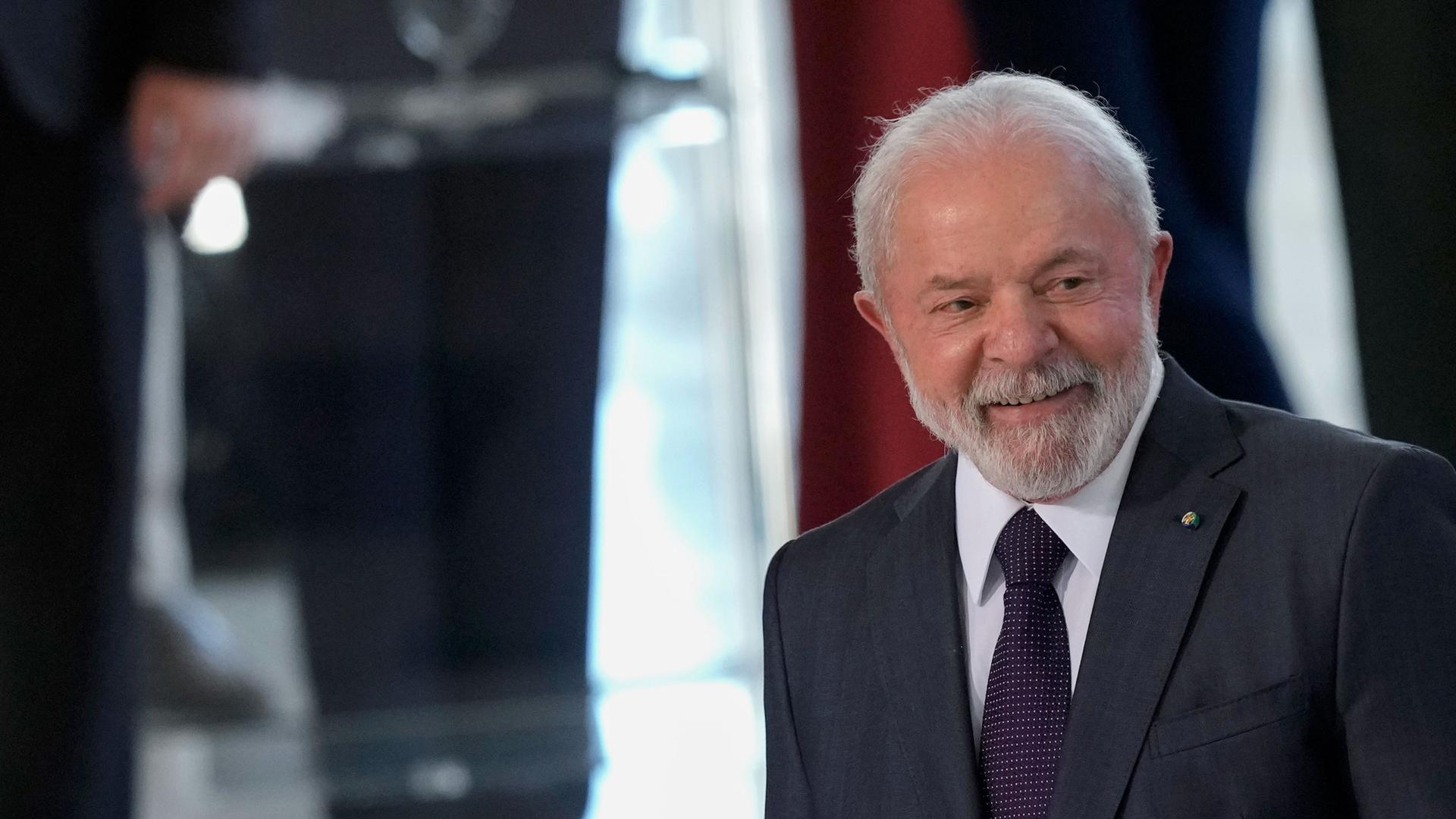China, Turkey, Iraq and even the Vatican have all offered to mediate a peace deal between Russia and Ukraine.
This week, Brazil’s President Luiz Inácio Lula da Silva also threw his hat in the ring. But Lula’s recent statements about the war in Ukraine have led to some sharp pushback from the US.
The war of words between the US and Brazil began last weekend, during Lula’s trip to China. He said that countries that are supplying weapons are “encouraging the war,” and need to stop — including the United States.
“The US needs to stop encouraging war, and start talking about peace,” he said.
In response, the US national security council spokesperson, John Kirby, accused Brazil of “parroting Russian and Chinese propaganda.”
Then, this week, when Russian Foreign Minister Sergei Lavrov met Lula in Brazil, he thanked him for encouraging negotiations. He also said that Russia and Brazil share common views on the conflict in Ukraine.
White House Press Secretary Karine Jean-Pierre pushed back:“We were struck by the tone of the press conference, of the foreign minister yesterday, which was not a tone of neutrality, suggesting that the United States and Europe are not interested in peace, or that we share responsibility for the war,” she said.
Lula dialed back his rhetoric and denounced the “violation of Ukraine’s territorial integrity.” But he renewed his call for negotiations between Russia and Ukraine.
“When you are looking at the war in Ukraine, Brazil has the ambition to be respected and taken seriously and sit at the table with other countries like the US and the European Union, to discuss peace, and to be a peace broker,” said Bruna Santos, director of the Brazil Institute at the Wilson Center.
Santos said that Lula wants to form a peace coalition with countries like China and India.
“His idea was that nonaligned countries could serve as a broker in negotiating peace,” referring to countries that are not fully aligned with either Russia or Ukraine.
Lula’s criticism of the US resonates with his left-wing Workers Party (PT).
“For the Brazilian left, it’s very important to be nonaligned, nonautomatically aligned with the United States, and it means that sometimes, they will give messages and signals that are leaning toward Russia and Putin,” Santos said.
The Kremlin welcomes these signals, especially from a trade partner like Brazil.
Vladimir Rouvinski, a professor of international relations at Icesi University in Cali, Colombia, said that Brazil is a huge economy, making it an influential global actor.
Rouvinski said the US would like Brazil to join other nations in sanctioning Russia and providing weapons to Ukraine. But, so far, Lula has refused.
Rouvinski said he thinks that Lula wants to keep good relations with the US, but that it needs to move beyond “good wishes.” If the US wants Latin America to support their position, Brazil wants to know what gets offered in return.
Investing more in Brazil and other parts of Latin America might help. But Rouvinski said that for now, that kind of offer isn’t on the table.
